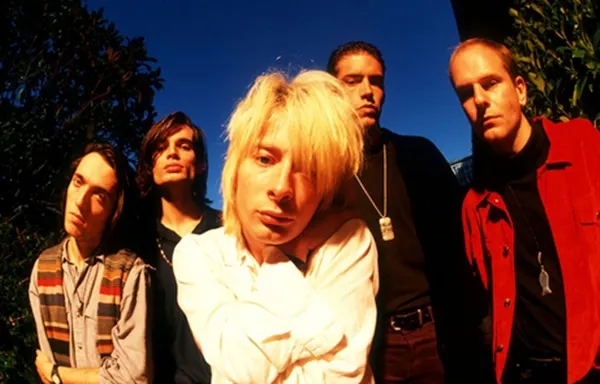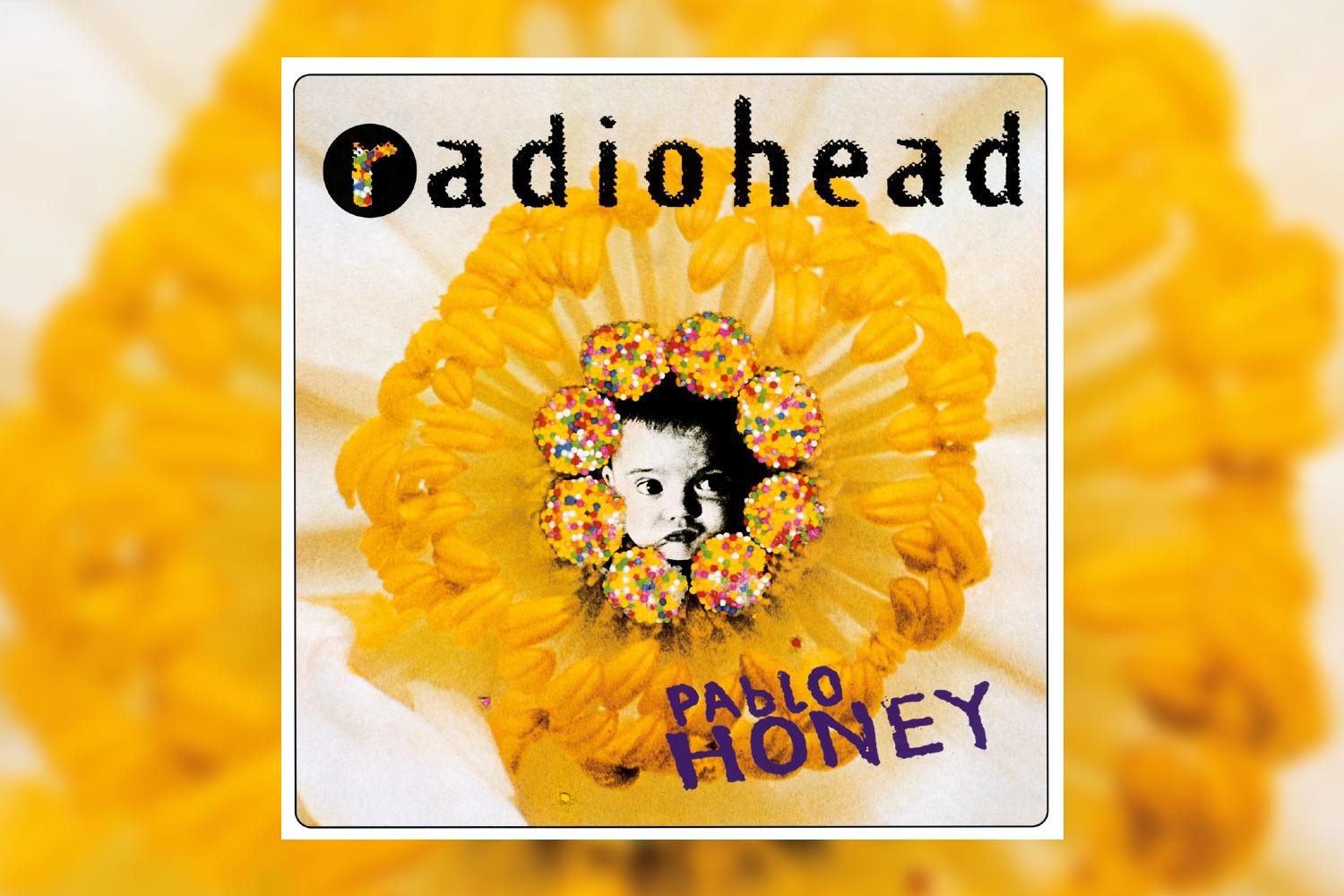A look into the debut record from Radiohead, Pablo Honey, featuring the inimitable 'Creep', 30 years on from its release.
We begin our story all the way back in 1985, Before Radiohead ‘Creep’ had taken the world by absolute storm – when the band were first getting together. Over in Oxforshire, England, at the popular Abingdon School, which boasts alumni such as comedians David Mitchell and Fin Taylor, and politicians like Edward Morant.
Read all the latest features, columns and more here.
Bonding over their love of music and bands like Fleetwood Mac and The Beatles, some mates got together, started a band called On A Friday, and knocked out a demo tape. This recording featured songs that would eventually appear on Pablo Honey – ‘You’, ‘I Can’t’, and ‘Thinking About You’.
In what seems like an overnight success story, this demo peaked the attention of the music industry.
After hearing them at a gig, Chris Hufford and Bruce Edge became the group’s managers, and signed them to iconic record company EMI. The band was offered a 5-record deal, and began work on their debut LP Pablo Honey roughly a year after being signed.
After an early demo didn’t receive a lot of traction, the band’s managers decided that the album needed an American flavour and touch – the only way to reach the charts in the USA.

After asking and interviewing a few different candidates, Pablo Honey found it’s producers in popular pair Paul Kolderie and Sean Slade, who had previously worked with iconic performers in the world of rock, such as Pixies, Dinosaur Jr, and The Mighty Mighty Bosstones.
The album was recorded in the town of Oxfordshire, England, in the Chipping Norton Studios, which had also seen performers such as Status Quo, Duran Duran, The Proclaimers, and plenty more grace it’s sound-proofed walls.
At the time of recording, Radiohead ranged in ages from 17-22, still early in their careers, and according to producer Paul Kolderie, this was evident in during sessions, in which they wanted to put in a plethora of different ideas, and jam pack the record with a heap of influences and sounds.
On a production level, according to the duo behind the desk, the band wanted to sound like the Beatles for this record, with no reverb on any of their songs, a consistent feature of many records of the same time. This, alongside the amateur nature of the group, caused extra work for the producers behind the record.
Whenever a music fan thinks of this record, the first song that comes to mind is ‘Creep’, a track that has an extremely interesting history behind it.
After pressure from EMI to make the songs ‘Lurgee’, or ‘Inside My Head’ the leading singles from the record, the band lead the recording process with them, but due to the lack of energy, the producers and the group didn’t want the track to be the first taste the world would get of the group.
Then, while taking a break, the band jammed on a track written by frontman Thom Yorke years prior, called ‘Creep’. The group performed the song in full, to which the studio erupted in applause as the song came to a close.
This version featured many attempts to ruin the take, with guitarist Jonny Greenwood slamming his guitar in the lead-up to the chorus, which soon became an iconic sound that made it onto the track.
The slam became known in the Radiohead camp as ‘The Noise’, and it was the product of Kolderie putting Greenwood’s amp in the drum room, and micing it up with a drum mic, helping it achieve the punchy growl that makes the song so memorable. The first take of the song involved no guitar slams, but after something lacking during the first take, Koderie asked Greenwood to record the noises again.
The band and Yorke humorously referred to as their ‘Scott Walker’ song, due to the often emotional and ethereal nature of Walker’s tracks. The producers misheard the group, thinking it was “a Scott Walker song” rather than “our Scott Walker song”, to which Kolderie mentioned to Slade: “Too bad their best song is a cover.”
Another interesting choice, but on a lyrical front, is that the song also famously contains an expletive in the lead-up to the chorus, with Thom Yorke singing “So Fucking Special”, which wasn’t an appropriate line for radio play, with the production team needing to manually mix in ‘very.’
Throughout the rest of the record, there were many other interesting decisions made on a production level, with the group using three very different guitars to use the album. Johnny Greenwood played a 1990 Telecaster, (which ended up being stolen), Thom Yorke used a 90’s Gibson SG and Ed O’Brien opted for a Rickenbacker 360.
This trio of guitars really helped the record achieve its distinct guitar sound, and allowed it to differentiate itself from many of the other rock records of the era.
Another Pablo Honey cut that had an interesting story behind it was ‘Anyone Can Play Guitar’.
Evidently, Kolderie and Slade hoped that this song would live up to its title, having acquired a bunch of different people to come in and play guitar for the introduction to the song. This included a janitor, a chef and many others coming in to create a sense of chaotic unease. The song also included Jonny Greenwood playing his guitar with a paintbrush.
The album was completed, and mixed and edited away from the band, in an effort to cut down on production time, as the band was still young, and there was the fear that recording would want to be done during post production.
The album, which was released February 1993, reached the top 100 in various corners around the world, including Australia, where it hit the 86 position on the ARIA Charts. The record still continues to be one of Radiohead’s most popular, with its songs still being the most requested at their gigs. It’s a path into rock music for many young fans of the genre.
The group followed up Pablo Honey with The Bends and OK Computer, albums that featured hits such as ‘High and Dry’, ‘Fake Plastic Trees’ and ‘Paranoid Android’, and continue to record and release transgressive, genre-bending music that is entirely singular to this day.
Listen to Radiohead’s Pablo Honey here.

